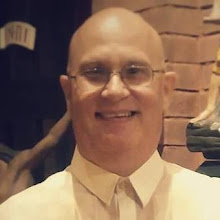I love the term “bucket list” and
think everyone should have one. For the un-initiated, the term comes
from a movie where two terminally ill men go off on an adventure to
do things they always wanted to do before they euphemistically “kick
the bucket”. One of life's greatest pleasures is to cross off
something on one's list.
This past Saturday February 21st, I got
to do just that. I heard a live, complete performance of a work on my
music “bucket list”, the Piano Sonata No. 2 (Concord, Mass.,
1840-1860) by Charles Ives. In St Joseph, Missouri of all places,
performed by the remarkable, über-talented and shall we say brave
pianist Robert Pherigo. Assisting in this insane genius work was Rico
McNeela in the tiny, but often omitted viola line in the first
movement and Lyra Pherigo in the more important but also
sometimes omitted flute part in the Thoreau movement.
As was typical of the feisty and
innovative composer, Ives broke most of the piano sonata rules. The
sonata is programmatic to a point, something rather unusual for a
piano sonata, being a musical portrait of transcendentalist authors
who lived in Concord, Massachusetts, around 1840-1860: Ralph Waldo
Emerson, Nathaniel Hawthorne, the Alcott's Louisa May and her father
Bronson, and Henry David Thoreau. Most classical sonatas were in
three movements, but Ives included four, stretching the work to
almost symphonic stature. Few, if any, piano sonatas have parts for
viola and flute scattered about either. Early material exists from
around 1904 and it seems the work was conceived as a piano concerto.
Work on the solo sonata started in earnest around 1910-11 and was
mostly finished around 1915. Ives tended to fiddle with his music off
and on thus the work was revised in 1947, the edition that seems to
be played the most.
Like icing on a tasty cake was the
informative pre-concert talk by author and composer Kyle Gann, one of
the foremost authorities on Charles Ives, the Concord Sonata and Vice
President of the Charles Ives society. Gann focused on the work's
background and the personages that inspired it while highlighting the
recurring themes and motives that tie the sprawling work into a quite
logical and organic whole.
More than a recital or concert, this
was an old fashioned “happening” for those who remember what that
meant.
The performance? I make no bones that I
am nowhere near qualified to judge, just looking at the score gives
me a headache. I found it technically excellent to my ears, having
heard the work many times in recordings and Robert negotiated the
work from memory without a visible sweat or concern. A Hamelin,
Fitzpatrick, Denk or Kalish might bring more polish, technical
brilliance and more experience with the complex score (Hamelin's
“Alcotts” will bring goose-bumps, but this one was not far
behind) but Pherigo brought the work and Concord, Mass. to life for
the appreciative audience, many of whom I am sure, like me, had never
had the opportunity to hear it live. Even Gann said it had been a
while for him. Certainly far far far and did I say far from a
slam-bang run through, Robert found the humor, the lyricism, the
tenderness, nobility and humanity in this complex score. On that
damp, winter night in St Joseph Robert brought the work to life, let
us glimpse the world of the denizens of Concord and communicated Ives
own commentary on them and on humanity itself.



No comments:
Post a Comment